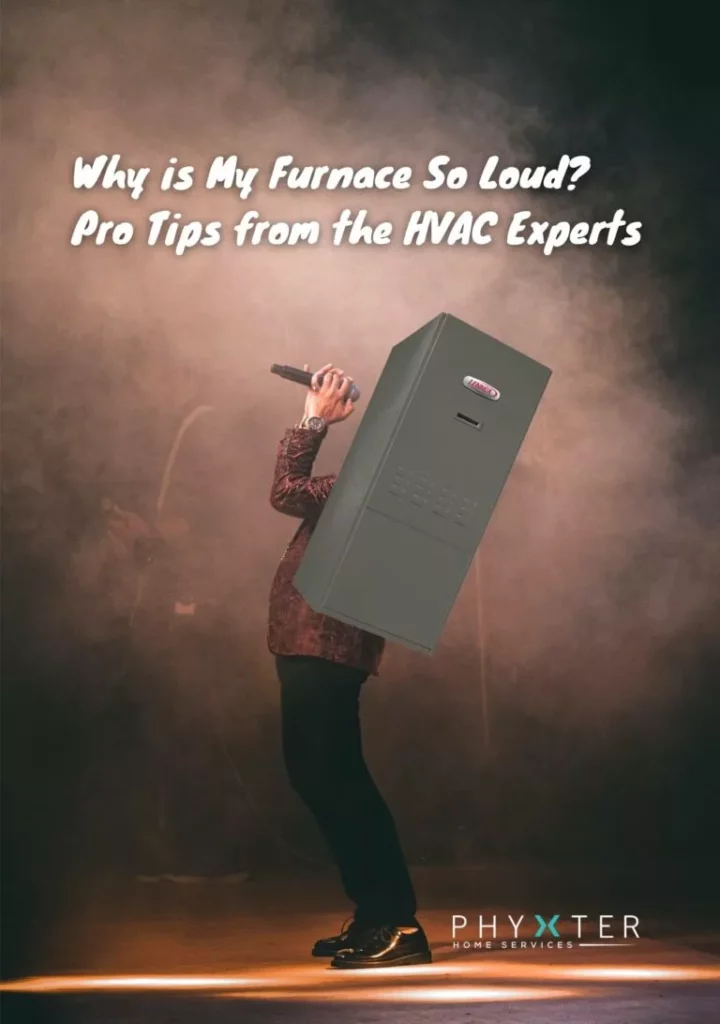This is one of the first questions we hear on HVAC service calls: “why is my furnace so loud?“. It’s quite normal to hear your furnace during normal operations.
With today’s modern technology built into your gas furnace, it shouldn’t make any loud noises. It should be heating your home with minimal sound output. But what happens when those noises become more discernable?
If your loud furnace makes any of the sounds listed below, you might have a problem. So without further ado, let’s get into the sounds your noisy furnace can make when it isn’t operating correctly and requires attention.
Table of Contents
⭐ Noises You Need to Pay Attention To
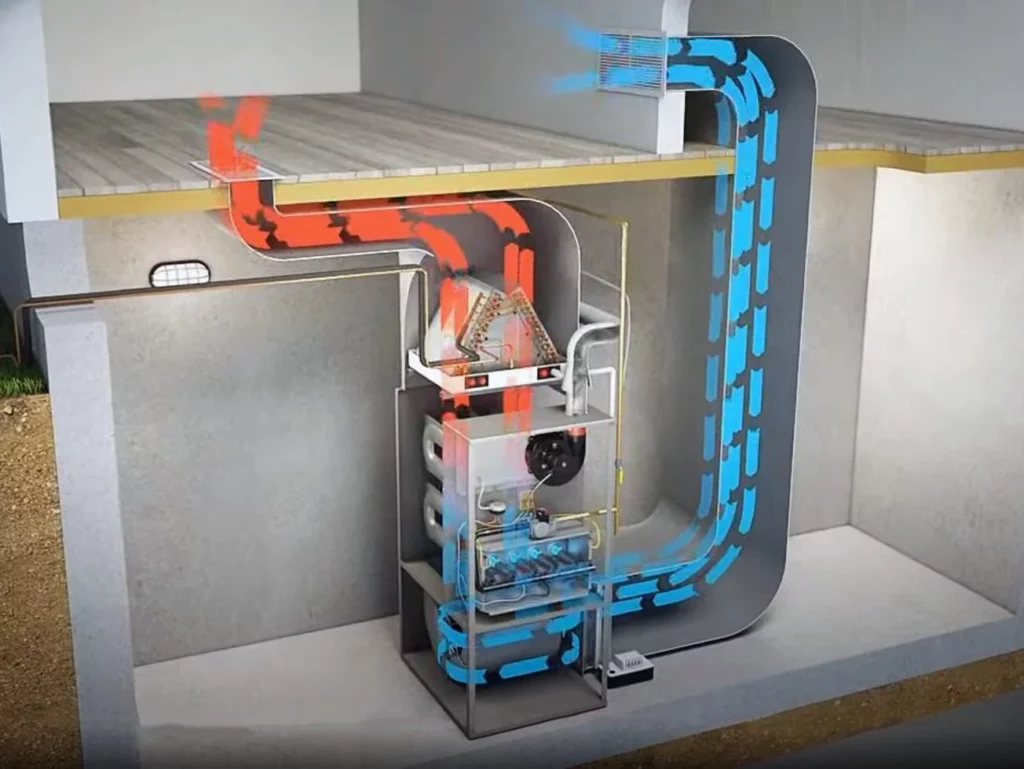
So why is my furnace so loud?
Never ignore strange noises coming from your furnace or HVAC system.
I’m sure you are used to the noises it makes when it’s running efficiently since you installed it.
So if anything stands out and just suddenly popped up, it’s time to check it out.
🔊 Banging Noises
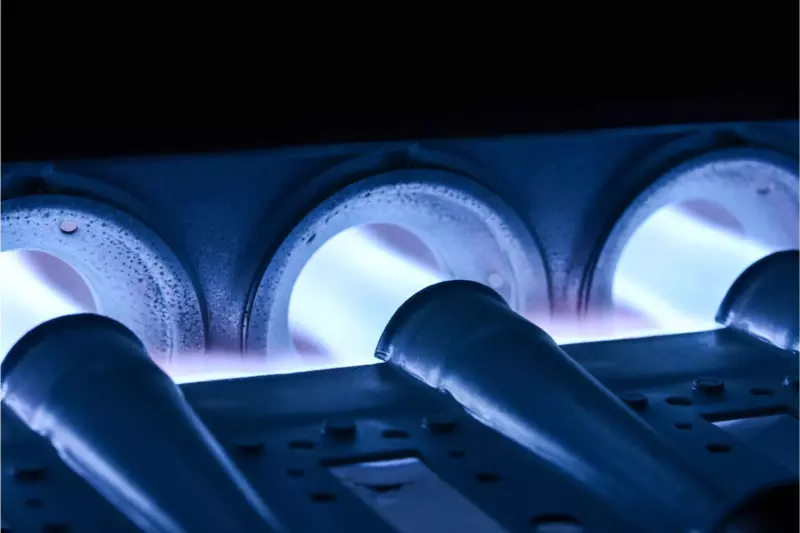
This is definitely not a sound you want to hear coming from your furnace.
A banging noise or a loud booming sound may be caused by small gas explosions in your combustion chamber due to delayed ignition.
This happens in natural gas furnaces when there is a gas buildup in the combustion chamber and then subject to delayed ignition and is out of sync with the ignition of the furnace burners.
If the gas is not being burnt efficiently, this is normally an indicator of a blockage or a gas pressure problem.
If you don’t know what you are doing, gas burners are tough to fix.
Repairing gas burners should be left to a professional HVAC technician.
It could also just be the result of dirty burners.
Cleaning dirty burners can be easily fixed by the average homeowner.
If you want to learn more about cleaning furnace burners, check out the article below.
What is a Furnace Burner, and Why You Should Keep Them Clean!
🔊 Shrieking Sounds
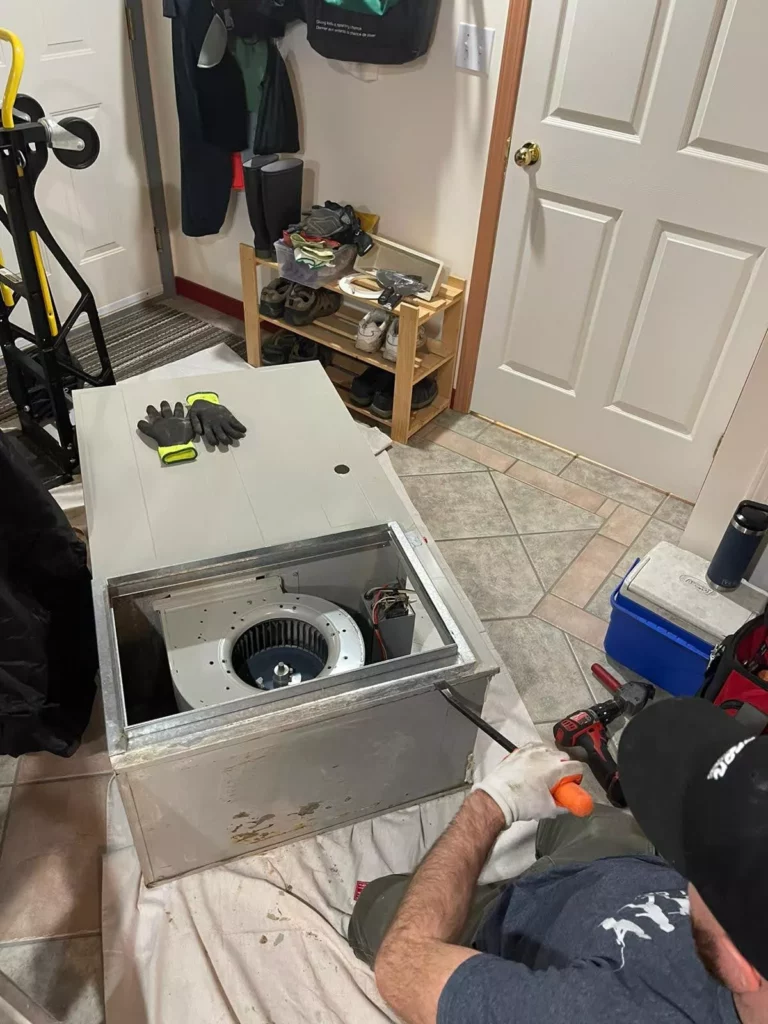
Unless it’s Halloween, your furnace shouldn’t be making these types of furnace noises.
High-pitched squealing or screeching sounds indicate an issue with your blower motor.
It could be as simple as a damaged fan belt or loose belt.
If you’re confident in your DIY skills, this is an easy fix if you catch it early.
If not, call your local HVAC company to replace the belt before it causes bigger problems.
🔊 Scraping Noises
Scraping sounds are common where there is a metal-against-metal sound.
A scraping noise is typical when you have dry bearings or suffer from a ball-bearing failure.
Also, the blower wheel aka the blower fan, might have come loose and is scraping the side of the housing.
This problem is best left to a professional technician to check out because it could be from a myriad of issues that might confuse most homeowners.
🔊 Rattling Noises
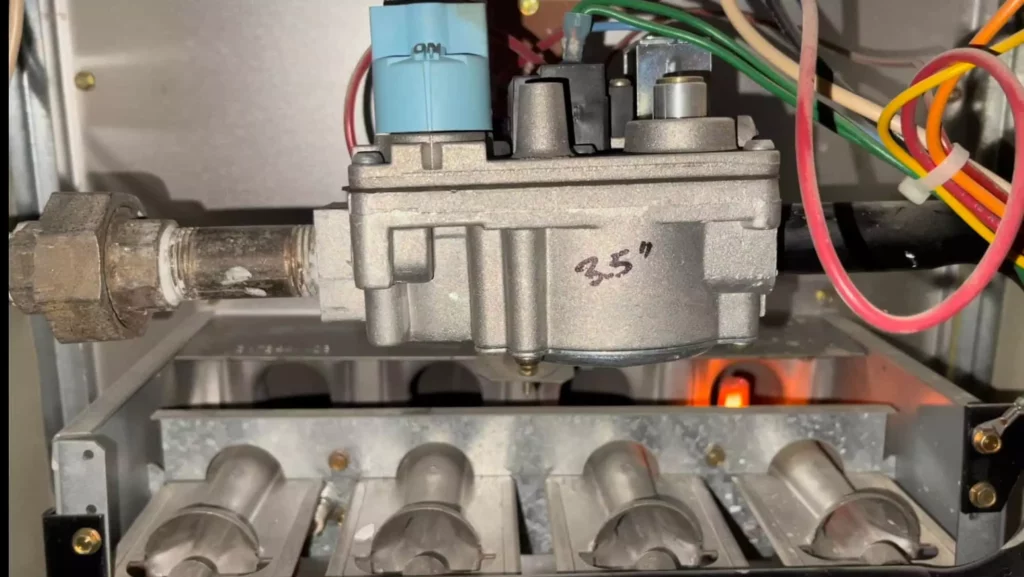
When something comes loose, it will cause a rattling sound from the vibrations.
Once a component is loose such as a loose screw, it can interfere with other parts and break them as well.
Now you have a whole bunch of parts rattling around inside your furnace, making noises.
Any part of your furnace can cause a rattling noise, so unless you’re an HVAC expert, this is best left to the professionals.
Any signs of rattling will require a specialist inspection of the main components, such as the blower motor, heat exchanger, furnace burners, and hot surface ignitor.
The right professional will have the right tools and equipment to properly repair your heating system.
🔊 Whistling Noises
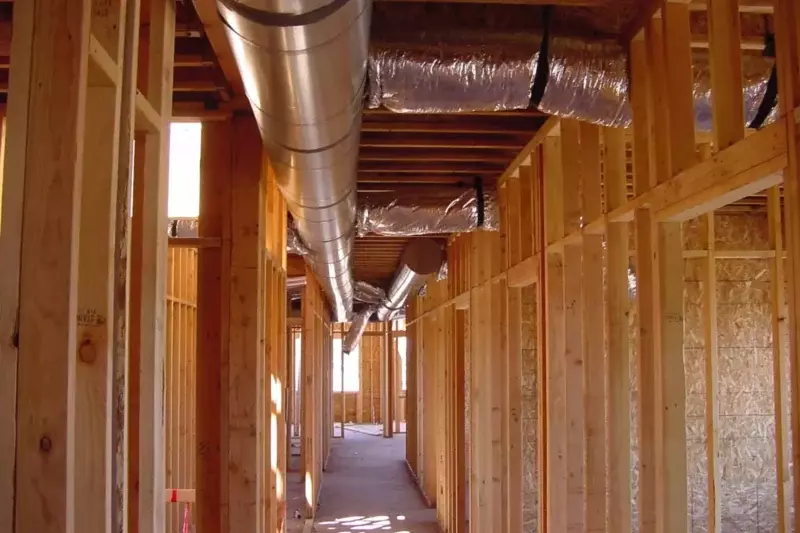
Your furnace might be whistling dixie or just making unusual whistling noise; either way, it’s not a noise you should hear.
This could be due to a leak in your air ducts or restricted airflow due to a clogged air filter.
Dirty filters cause a whole range of problems with your heating and cooling system and should be on the list of things to check first.
A dirty filter is easily changed, and you would be surprised how many problems, such as whistling sounds, go away when you install a new filter.
Related Reading:
Top 5 HVAC Problems Caused by a Dirty Air Filter
Furnace Filter Direction – Which Way Is the Right Way?
Furnace Filter Location — Where is It?
🔊 Humming Sounds
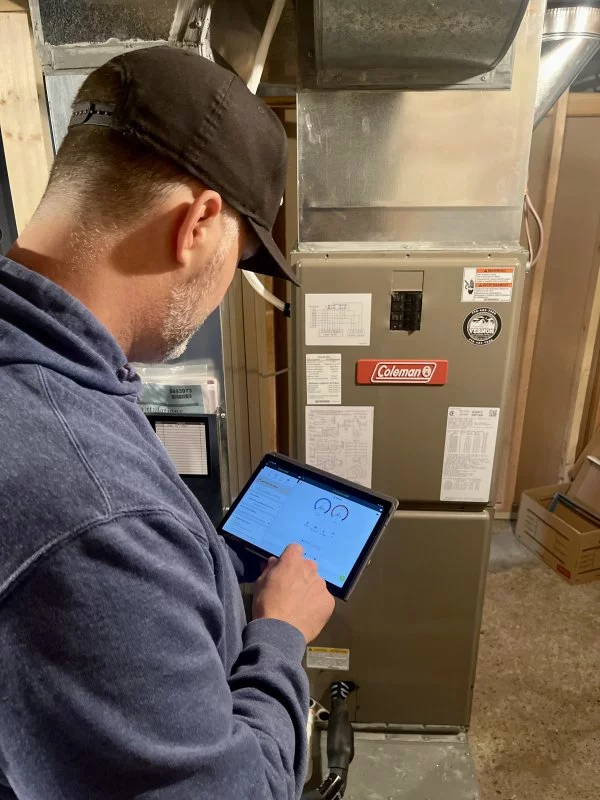
All furnaces will produce a low humming sound during the heating cycle.
Though an electric furnace will be much quieter than a natural gas-powered furnace.
If this sound gets louder and just doesn’t seem right, you may have a serious issue with your blower motor.
To reduce the likelihood of damage, call your local HVAC company to come out and inspect and repair the blower motor.
🔊 Popping Noises
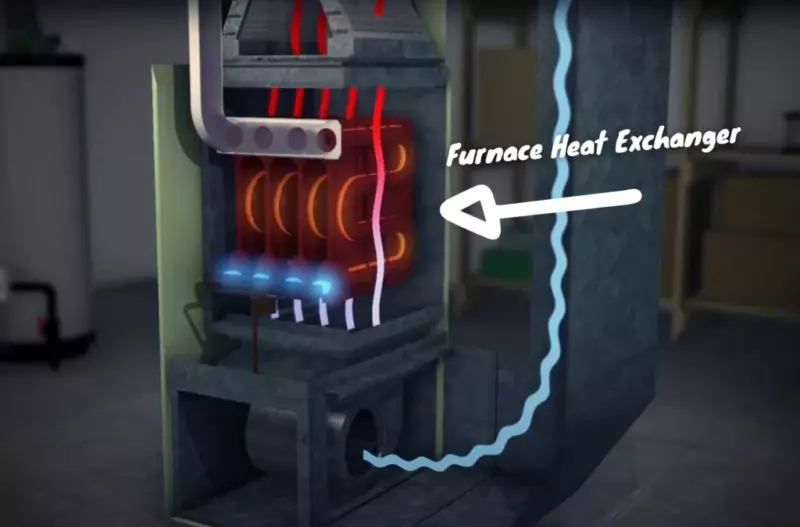
When your furnace begins the heating cycle, the blower motor moves the warm air around your home through air ducts.
This change in temperature causes metal to expand and contract and can be the source of the popping noise.
Another major source of popping noise could be the heat exchanger.
A faulty heat exchanger can also be the source of different noises, such as rattling.
If your heat exchanger develops a crack, the difference in metal expansion on either side of the crack as its heated will cause these strange sounds.
A cracked heat exchanger should not be taken lightly and can present a serious problem.
A cracked heat exchanger can be hazardous to your family’s health as it can be the source of a carbon monoxide leak.
🛑 NOTE: Carbon monoxide (CO) is an odorless and colorless gas that can kill in the right dosage. Carbon monoxide poisoning can result from a CO leak.
✅ PRO TIP: Install a carbon monoxide alarm near your furnace to monitor levels of CO.
Like all the problems on this list, scheduling regular professional maintenance will ensure your heating system works properly when needed.
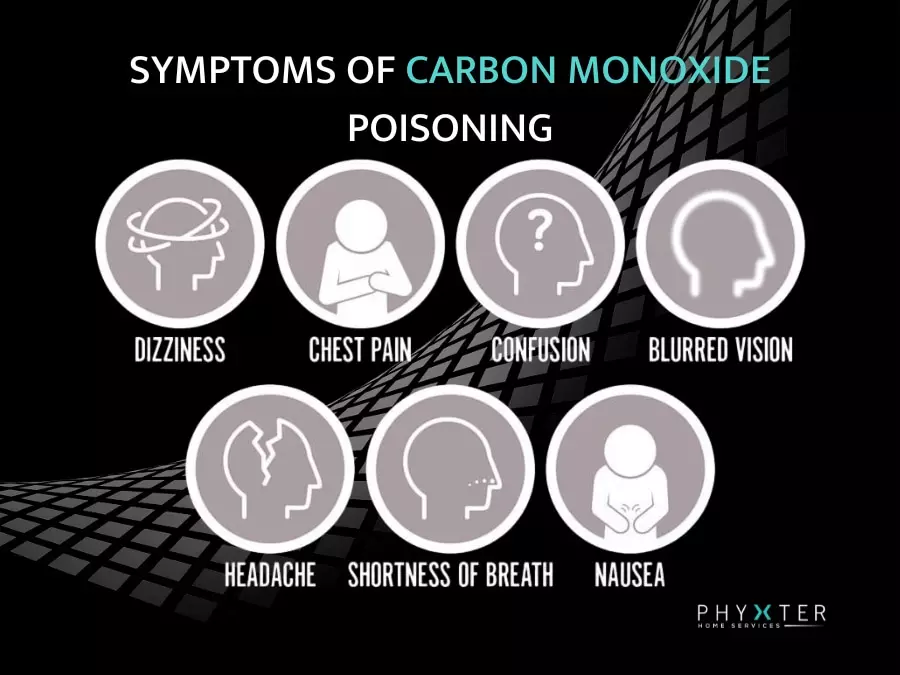
⭐ Call The Pros for a Safe and Quiet Furnace
Now that you have learned a little about what these furnace sounds mean, you can be confident in seeking the right advice or help from an HVAC professional.
It always helps when dealing with HVAC companies to accurately identify and articulate the problem early to save time and money.
Preventative maintenance should always be a part of your home’s HVAC plan.
Catching problems early is key to reducing furnace repairs not only from a cost perspective, but also, so you are not left without heat during dangerously cold weather.
Also, Murphy’s law dictates that if you don’t keep your furnace in good working order, it will break down on the coldest day of the year, and all the local technicians will be booked out for weeks.
Related Reading: Why Your Air Conditioner Sounds Like a Jet Engine: 4 Quick Steps for a Quieter AC

